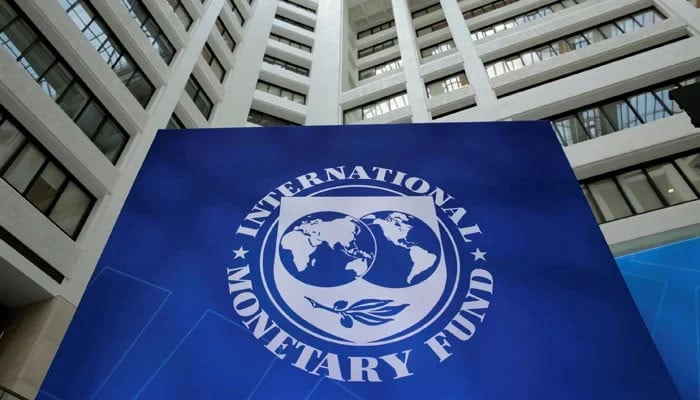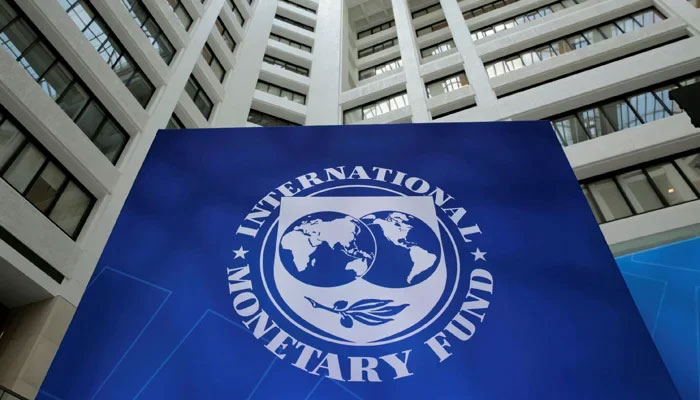‘Positive development’: Experts foresee stability, rupee strengthening post-IMF deal
Pakistan on Friday secured the staff-level agreement (SLA) wit the International Monetary Fund (IMF) on a $3 billion stand-by arrangement, that help the country get out of the default situation and put the economy back on track.
IMF’s executive board will meet mid-July to approve the disbursement of funds to Pakistan, which faces an acute balance of payment crisis and depleting foreign exchange reserves — enough for less than a month’s imports.
Economic experts note that the deal will provide short-term relief to the cash-strapped nation, which was trying to convince the IMF for the last eight months, but Pakistan’s economic stability is conditioned to the fiscal policies laid forth by the lender.
Prioritise economy over politics
Renowned businessman Amin Hashwani, while speaking to Geo News, said that “the risk of default has been averted as we would not have been able to repay debts in the next three to six months” without the IMF bailout package.
He also warned that “if the incumbent government opts to prioritise its politics over economy then things will go awry.”
“Despite the IMF deal, a lot of damage has been done in the past eight months,” he said, while lamenting that the rulers never learned from their past mistakes.
“The problem does not lie in IMF but in us because we are receiving debt money from them. They are not saying something to us out of any enmity but only urging us to put our house in order,” Hashwani stated.
He also noted that “we did not carry out structural reforms, therefore, we have arrived at this situation”.
‘Fundamental issues unlikely to go away’
Khaqan Najeeb, a former adviser to the Ministry of Finance, said Pakistan entered its 23rd facility with IMF after leaving the current programme incomplete.
In the short run, he said the IMF deal would avert the country’s default, lead to some macroeconomic stability and ensure external financing to raise state bank’s reserves.
“However, Pakistan’s fundamental issues are unlikely to go away. That’s the serious thought we must be contemplating,” he noted.
‘Fiscal discipline’
Development economist Maha Rehman said the SBA is great news and one Pakistan has been waiting for a long time.
The economist said the deal would hopefully give the country room to take prudent decisions so that after the nine months lapse, the economy is not at a similar threshold.
She said IMF laid out two to three priorities for the government to follow which include energy reforms.
“It will require the government to demonstrate fiscal discipline and I hope we can use this space to start putting our own house in order: Plan to increase exports base sustainably and attract FDI [foreign direct investment] towards the productive sectors of the economy.”
‘No sustainable’ rupee recovery
Topline Securities, a Karachi-based brokerage firm, said in a note that the new IMF programme is far better than expectations and added that funding of $3 billion would help restore some investor confidence.
“Saudi, UAE, and other bilateral and mulitareal funding will now come in after this new deal helping depleting FX reserves,” the note added.
It said interest rates are expected to remain high as IMF required SBP to remain proactive in line with inflationary pressure.
The brokerage firm added that it expects the rupee to gain in the short run — both in the interbank and open market — but it will not make a major or sustainable recovery.
The firm also anticipated that Pakistan’s Eurobonds rally would continue especially in short-duration bonds. “Pakistan 2024 Bond is already up from a low of 38 cents to around 62 cents yesterday.”
‘Surprise’
Arif Habib Limited termed the signing of a new programme a “major positive surprise given the heightened level of concerns on the short-term external account outlook given very low FX reserves of USD 3.5 bn”.
“It also removes uncertainty as there were concerns on what will happen between now and the formation of a new government post elections (likely in Nov).”
The government’s smart move for a short-term programme provides a clear framework for economic decision-making over the next two to three quarters and ensures the caretaker will have a defined policy roadmap whenever they take charge, it said.
The firm also predicted that local currency will strengthen in the short term on the feel-good factor “though we do see any recovery to be short-lived as opening up of the forex markets and ease of import restrictions will keep pressure on the currency”.
While the modalities of the new SBA are still unknown, energy sector reform in particular tariff hikes to rein in circular debt appear highly likely and will keep inflation elevated, the statement added.
‘Fulfil commitments’
Exchange Companies Association of Pakistan (ECAP) Chairman Malik Bostan opined that Pakistan should fulfil the commitments it made to the global lender in the latest agreement.
He maintained that “after securing funding, new opportunities have opened which will lead to an increase in foreign exchange reserves”.
While anticipating an appreciation in the value of the local currency, Bostan said: “Dollar will depreciate by five to ten rupees as the market opens.”
‘Open doors to import’
Economic expert Shahid Ali stated that Pakistan “has secured nine months programme with a new road map. With the help of the programme, inflation will be brought down in the times ahead.”
The country needs to maintain a current account surplus, Ali said, adding that “we have to open our doors to import”.
Economic roadmap
Speaking to Geo.tv, Pakistan-Kuwait Investment Company Head of Research Samiullah Tariq termed the SLA a good development as it would give the country an economic road map during the next nine months.
“Secondly, it would reduce uncertainty regarding the balance of payments […] and make it easier for companies to make decisions,” he added.
‘Very positive’
President of Pakistan Businessmen and Intellectuals Forum (PBIF) Mian Zahid Hussain told Geo News after securing the IMF deal, Pakistan will also receive funds from Islamic Development Bank and the World Bank.
“It is a very positive development,” he noted.
For all the latest business News Click Here


